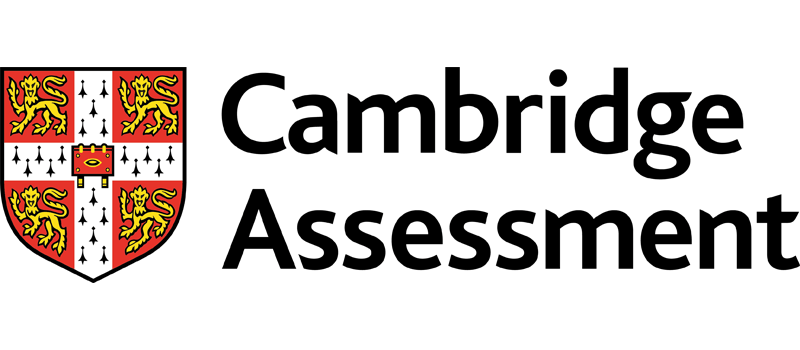
Understanding Taxation and Financial Implications
Course ID: 2507140101425ESH
Course Dates : 14/07/25 Course Duration : 5 Studying Day/s Course Location: London, UK
Language: Bilingual
Course Category: Professional and CPD Training Programs
Course Subcategories: Finance and Accounting Mastery
Course Certified By: ESHub CPD & LondonUni - Executive Management Training
* Professional Training and CPD Programs
Leading to:
Executive Diploma Certificate
Leading to:
Executive Mini Masters Certificate
Leading to
Executive Masters Certificate
Certification Will Be Issued From :
From London, United Kingdom
Course Fees: £5,120.30
Vat Not Included in the price. VAT may vary depending on the country where the course or workshop is held.
Click to Pay
Date has passed please contact us Sales@e-s-hub.com
Course Information
Introduction
Taxation and financial management form the backbone of both individual and organizational success in a rapidly evolving economic landscape. For professionals navigating this complex terrain, understanding the intricacies of tax systems, compliance frameworks, and financial implications is not merely advantageous—it is essential. The ability to interpret tax regulations, anticipate financial risks, and optimize fiscal strategies can significantly impact decision-making processes. This course delves into these critical areas, equipping participants with the tools they need to navigate taxation confidently while aligning their practices with broader financial goals.
One of the most pressing challenges in modern business environments is the ever-changing nature of tax laws and financial policies. Regulatory updates, international trade agreements, and technological advancements often outpace the knowledge base of even seasoned professionals. This gap in expertise can lead to costly errors, missed opportunities, and reputational damage. By addressing these challenges head-on, this course aims to bridge the divide between theoretical understanding and practical application, ensuring that participants remain at the forefront of industry best practices.
The benefits of mastering taxation and financial implications extend beyond individual career growth; they also contribute to organizational resilience and competitiveness. Companies that prioritize tax efficiency and financial transparency are better positioned to allocate resources effectively, mitigate risks, and enhance shareholder value. Drawing on established theories such as the Laffer Curve and frameworks like the Balanced Scorecard, this course underscores how strategic tax planning integrates seamlessly with broader financial objectives. Participants will gain insights into how organizations like Apple and Amazon have leveraged tax optimization strategies to bolster profitability.
Real-world examples further illustrate the importance of this subject matter. Consider the case of multinational corporations grappling with Base Erosion and Profit Shifting (BEPS) initiatives introduced by the OECD. These regulations require businesses to rethink their global tax structures, emphasizing the need for professionals who can navigate cross-border complexities. Similarly, small enterprises must contend with domestic tax codes, payroll obligations, and VAT requirements—all of which demand precision and foresight. Through interactive discussions and case studies, this course brings these scenarios to life, enabling participants to draw parallels with their own professional contexts.
Moreover, the interdisciplinary nature of taxation and finance makes it relevant across various sectors, from healthcare and education to technology and manufacturing. Professionals equipped with a nuanced understanding of these domains can drive innovation, foster collaboration, and ensure compliance. For instance, an HR manager adept at interpreting tax incentives for employee benefits can design compensation packages that attract top talent while minimizing costs. Likewise, consultants advising startups on capital structure decisions must account for tax implications to deliver sustainable solutions.
Ultimately, this course serves as a catalyst for transformation—empowering individuals to become trusted advisors within their organizations and industries. By blending technical expertise with strategic thinking, participants will emerge prepared to tackle contemporary challenges, seize emerging opportunities, and contribute meaningfully to their fields. Whether you are seeking to refine your skills or expand your knowledge base, this program offers a comprehensive pathway to mastery in taxation and financial implications.
Objectives
By attending this course, participants will be able to:
Analyze fundamental principles of taxation, including income tax, corporate tax, and indirect taxes, to identify key compliance requirements.
Evaluate the financial implications of different tax structures and recommend optimal strategies for diverse organizational needs.
Design effective tax planning frameworks tailored to specific industries, incorporating recent legislative changes and global trends.
Implement risk mitigation techniques to address potential liabilities arising from non-compliance or misinterpretation of tax laws.
Apply advanced analytical tools and software to streamline tax reporting processes and improve accuracy.
Assess the impact of international tax treaties and BEPS guidelines on cross-border transactions and operations.
Synthesize insights from real-world case studies to develop actionable recommendations for improving tax efficiency and financial performance.
Who Should Attend?
This course is ideal for:
Accountants, auditors, and finance managers seeking to deepen their expertise in taxation and its financial ramifications.
HR professionals responsible for payroll processing, benefits administration, and workforce planning.
Business owners and entrepreneurs aiming to optimize their tax strategies and enhance profitability.
Consultants and advisors providing guidance on financial structuring, mergers, and acquisitions.
Legal practitioners specializing in commercial law or regulatory compliance.
These groups will find the course invaluable due to its focus on practical applications and alignment with current industry demands. While prior exposure to basic accounting concepts is beneficial, the course accommodates beginners through foundational modules, making it accessible to intermediate learners as well.
Training Method
• Pre-assessment
• Live group instruction
• Use of real-world examples, case studies and exercises
• Interactive participation and discussion
• Power point presentation, LCD and flip chart
• Group activities and tests
• Each participant receives a 7” Tablet containing a copy of the presentation, slides and handouts
• Post-assessment
Program Support
This program is supported by:
* Interactive discussions
* Role-play
* Case studies and highlight the techniques available to the participants.
Daily Agenda
Daily Schedule (Monday to Friday)
- 09:00 AM – 10:30 AM Technical Session 1
- 10:30 AM – 12:00 PM Technical Session 2
- 12:00 PM – 01:00 PM Technical Session 3
- 01:00 PM – 02:00 PM Lunch Break (If Applicable)
- Participants are expected to engage in guided self-study, reading, or personal reflection on the day’s content. This contributes toward the CPD accreditation and deepens conceptual understanding.
- 02:00 PM – 04:00 PM Self-Study & Reflection
Please Note:
- All training sessions are conducted from Monday to Friday, following the standard working week observed in the United Kingdom and European Union. Saturday and Sunday are official weekends and are not counted as part of the course duration.
- Coffee and refreshments are available on a floating basis throughout the morning. Participants may help themselves at their convenience to ensure an uninterrupted learning experience Provided if applicable and subject to course delivery arrangements.
- Lunch Provided if applicable and subject to course delivery arrangements.
Course Outlines
Foundations of Taxation
Overview of Tax Systems and Types
Key Components of Income Tax Calculation
Introduction to Corporate Tax Structures
Understanding Indirect Taxes (VAT, GST)
Day 2:
Compliance and Reporting
Navigating Domestic Tax Laws and Regulations
Best Practices for Accurate Tax Filing
Role of Technology in Tax Reporting
Common Pitfalls in Compliance and How to Avoid Them
Day 3:
Financial Implications
Linking Tax Strategies to Organizational Goals
Evaluating the Cost-Benefit of Tax Incentives
Managing Cash Flow Through Effective Tax Planning
Case Study: Analyzing Financial Statements Post-Tax Optimization
Day 4:
International Taxation
Cross-Border Transactions and Double Taxation Treaties
Impact of BEPS Guidelines on Global Operations
Transfer Pricing Principles and Challenges
Practical Exercise: Designing a Multinational Tax Strategy
Day 5:
Advanced Applications
Leveraging Data Analytics for Tax Insights
Risk Management in Complex Tax Environments
Future Trends in Taxation and Finance
Group Project: Presenting a Comprehensive Tax Plan



















































